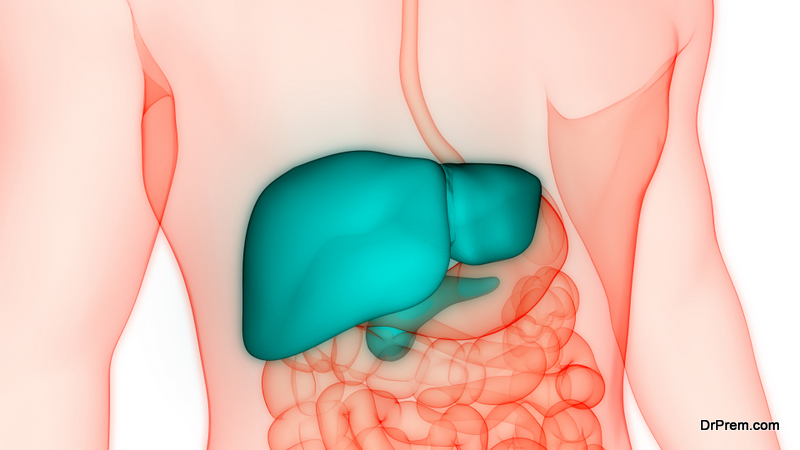Definition:
Liver transplantation is a surgical procedure performed to replace a diseased liver with a healthy liver from an organ donor.
The types of liver transplantation procedure includes
- Orthotopic transplantation– replacement of a whole diseased liver with a healthy donor liver. This is most commonly performed liver transplant method.
- Heterotrophic transplantation –the diseased liver is left intact and the additional donor liver is put at another site
- Reduced-size liver transplantation- a whole diseased liver is replaced with a portion of a healthy donor liver. This procedure is most frequently performed on children.
Why it needed?
The liver transplantation is advised to patients who had end stage liver disease and is other wise fit for the criteria of liver transplantation. The conditions in which liver transplantation is advised includes
- Cirrhosis of the liver- caused by chronic alcoholism or due to unknown reason
- Chronic liver disease(Hepatitis) leading to irreversible scarring of the liver, billiary system
- Cryptogenic liver disease
- Acute liver failure
- Biliary atresia – is an incomplete development of the bile duct, is common reason for transplantation in children
The eligibility of a patient for liver transplantation is also decided on the base of certain laboratory tests and clinical condition of the patient.
The symptoms of diseased liver includes
- Jaundice –yellowness of skin and eyes
- Itching
- Clay or black colored stool
- Ascites –abnormal fluid collection in the abdomen
- Vomiting (blood)
- Severe bleeding from minor cuts or wounds
- Kidney dysfunction
- Excessive tiredness and fatigue with law appetite
- Drowsiness, forgetfulness and mental confusion
Contraindication for liver transplantation:
- Active alcohol or drug abuse
- Metastasis cancer outside liver
- Advance age with serious heart or other diseases
- HIV or severe septic condition
Facts and figures
- The liver is the largest solid organ in the body, now a days, cross country transport of liver is possible, as with the latest technology and special chemicals the liver can be preserved outside the body for 10-20 hours
- After the kidney, the liver is considered as the second most commonly transplanted major organ.
- According to United Network for Organ Sharing about 5,300 liver transplantations were performed in United States in 2002, and currently more than 17,000 people are in waiting list.
- Presently liver transplantation is considered as one of the most expensive treatment.
- The first human liver transplant was performed by a surgical team of United states, under the guidance of Dr. Thomas Starz in 1963
Advantages
- The successful liver transplant saves life of a dying patient. Approximately 75% to 80% of patients survive for about 3 or more years after transplant surgery.
- The patients are able to live a complete normal life after transplant
Disadvantages
- Liver transplantation is considered as one of the most expensive treatment
- Longer waiting period to get a healthy organ
- Patient needs to take lifelong immunosuppressive drugs that makes patient more susceptible to get infection.
- Patients may suffer from certain side effects of medicine or steroids
- Transplant rejection, occurs in about 2to 5% of patients
Risk and complications associated with liver transplant surgery includes
- Anesthesia/medicinal reaction
- Bleeding
- Infection
- Damaged to billiary duct or adjacent organs
Preoperative preparation
- Complete physical examination
- Blood test-liver function tests
- Urinalysis –kidney function tests
- CT scan and USG of the abdomen
- Patient and relatives are informed about the procedure, follow up and risk involved.
- Consultation with surgeon or doctor a week ago, and have a list of medicine which is to be taken or needed to be stopped.
- Have an arrangements with family and/or friends to help during the post-operative rehabilitation
- Arrangement for blood transfusion, if required during or after surgery
- Prepare home as per the requirement for the recovery after the surgery
- Do not eat or drink anything after midnight the night before surgery
- The medical tourist is advised to plan a trip for staying maximum time.
Post operative care
- After the surgery patient is kept in ICU (intensive care unit) for about 3-4 days to monitor vital signs. Once stabilized, the patient is shifted to a room having a few monitoring devices. Usually patients needs to stay at hospital for about 1-3 weeks after the surgery
- First few days patients are given liquid diet, then gradually switch on to solids with lesser salt
- Initially patient is encouraged to walk slowly then gradually resume to normal daily activities.
- Patients will be instructed regarding dressing care, signs of rejection or infection before getting discharged from the hospital. The first three months post surgery is very crucial during which the patient needs to take certain precautions to avoid acquiring any type of infections.
Dos, Don’t and Precautions to be followed after the surgery includes
- Follow the advised dietary regimen carefully
- Be regular about follow –up visits and monitor the signs of rejection and infection carefully
- Inform the surgeon immediately if suspects any sign of infection or rejection
- Wash hands frequently
- Take all prescribed medication regularly
- Don’t swim in lakes or common swimming pool for about 3 months after surgery
- Avoid crowds and rooms with poor air circulation
- Avoid contact with sick persons
Patient of liver transplant needs to take certain medicines throughout the life and also needs to take good medical care, prevent and treat complication with the guidance of doctor to ensure the long and healthy life after liver transplant.
A patient can expect the full recovery about 3-6 months after the surgery






